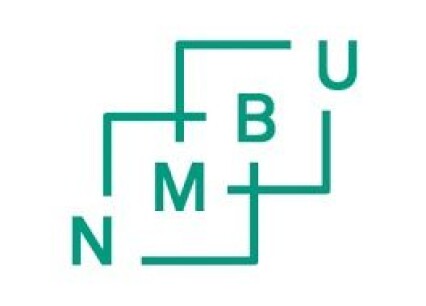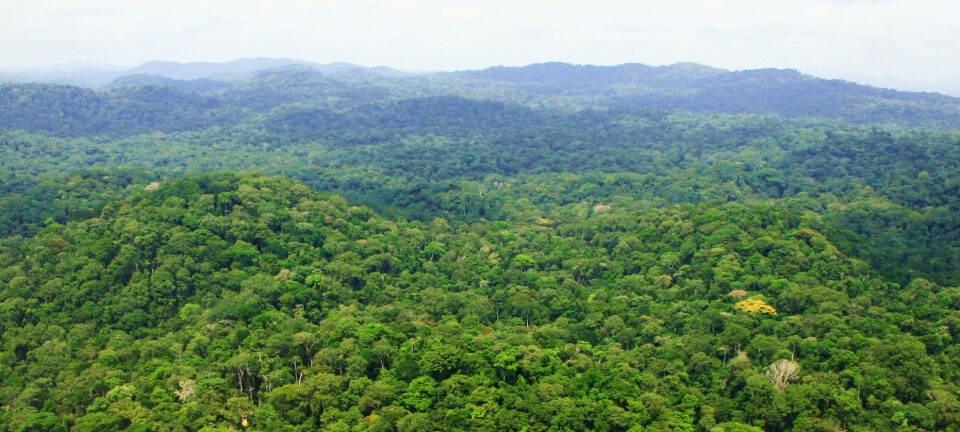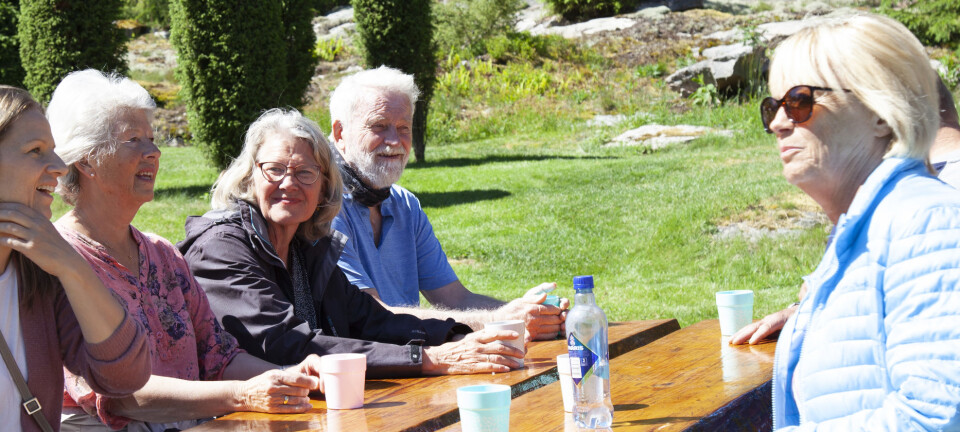This article is produced and financed by the Norwegian University of Life Sciences (NMBU) - read more
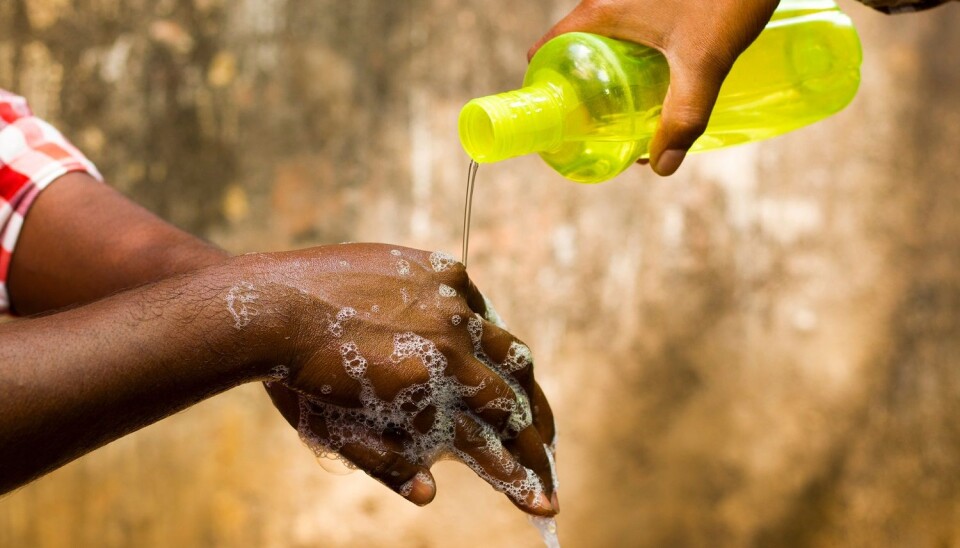
Scientists are concerned about the spread of the coronavirus in Africa
Due to the shortage of clean water and soap, weak healthcare systems and great poverty, many African countries are poorly equipped to deal with the rapid spread of Covid-19 across the continent.
For a long time the countries of Africa appeared to make a lucky escape. Few cases of infection were reported, at a time when Asia, Europe and the USA were already facing a crisis.
This week there was a change in the pace at which the virus spread, however. More than 2,200 Africans are infected, with South-Africa, Algeria and Burkina Faso being the hardest hit, according to figures from the World Health Organisation. Infected cases have been registered in a total of 39 countries.
"Never before in the history of our democracy has our country been confronted with such a severe situation," said South Africa's President Cyril Ramaphosa in a statement delivered on national television last Sunday.
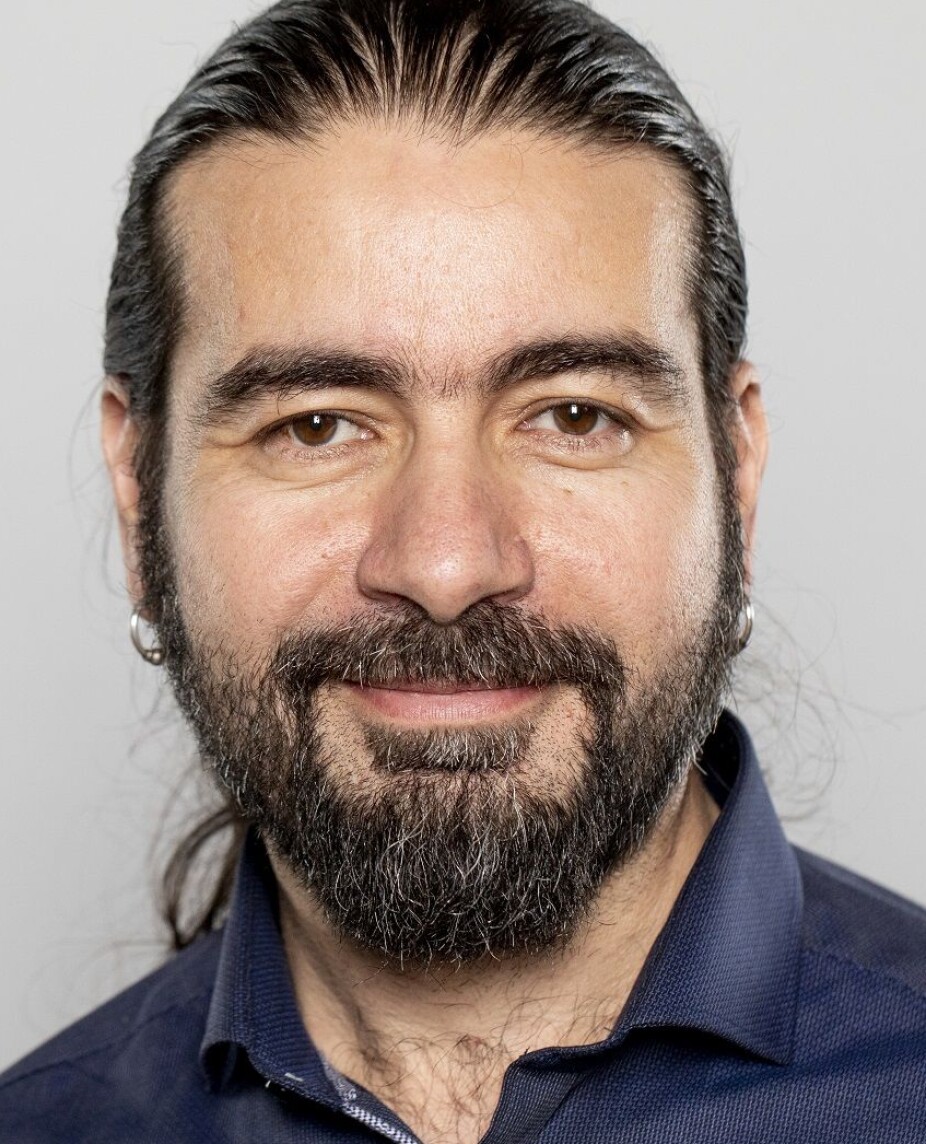
The World Health Organization’s regional chief, Dr. Matshidiso Moeti, claims that the continent is seeing an 'extremely rapid evolution' of the pandemic, reports AP News.
That is why a number of African countries have now introduced strict measures. The South-African authorities have declared a national state of disaster and asked people to stay indoors for three weeks. A number of countries have suspended international flights, prohibited sport events and public gatherings, closed educational institutions and, in some cases, imposed a curfew.
Despite these extensive measures, researchers at the Department of International Environment and Development Studies (Noragric) at NMBU are concerned about how African countries are to deal with the Covid-19 crisis.
Difficult to enforce
"There are wide differences in how well equipped the countries in Africa are to deal with the spread of the coronavirus. Not only are there differences between the countries, but also within each country," says Head of Department Shai André Divon at Noragric.
He observed how the health systems worked in countries like Liberia during the Ebola virus outbreak in 2014.
Access to necessary healthcare is particularly difficult in rural settings, where the infrastructure is lacking, central authorities have little control, health stations are few and far between, and resources are limited.
"The situation is however most precarious in countries ravaged by civil war, where the central authorities often lack control of the territory to start with," Divon points out.
He believes that the large cities are better equipped to enforce security measures. There, the police and military have access to more resources.
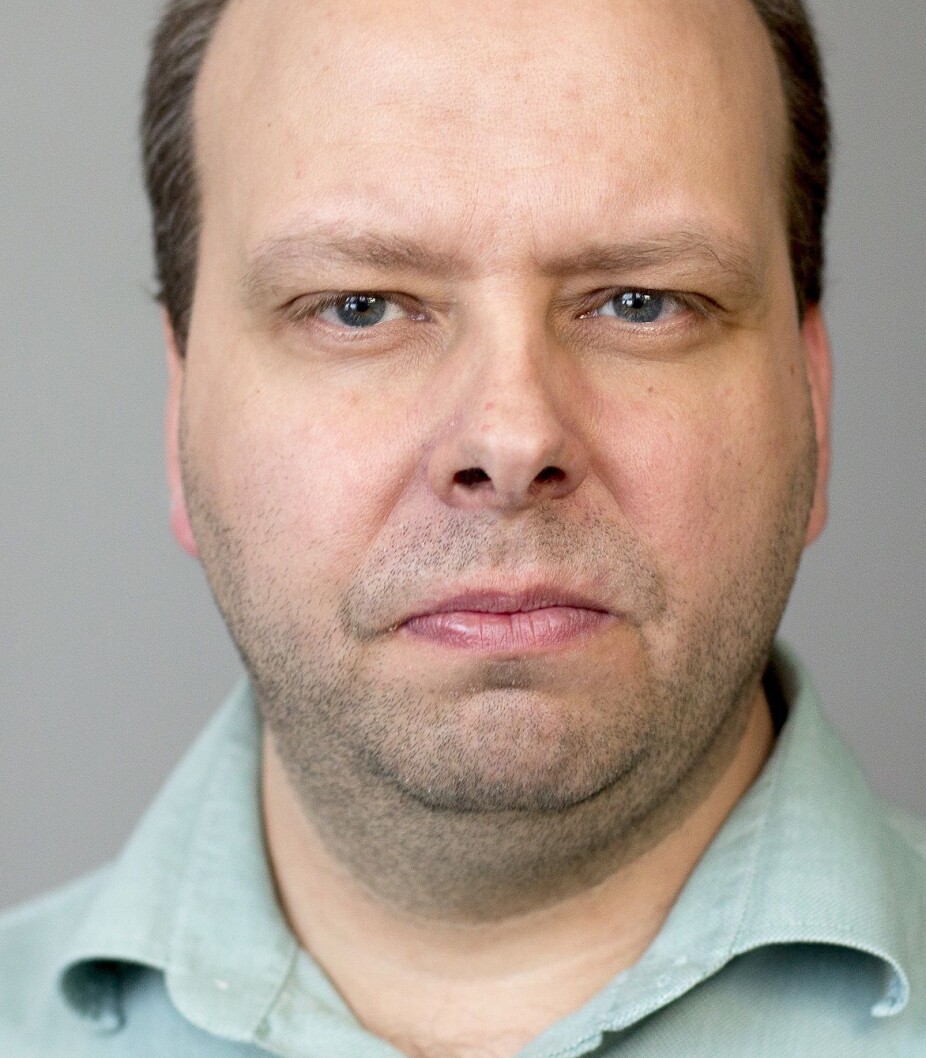
On his part, Professor Stig Jarle Hansen believes that the leaders of some countries are playing to the gallery when making grand statements and promising to put extensive measures into place, and do not believe that they will actually be able to act accordingly:
"In Somalia, a country marked by violent conflict, I see that the authorities are trying, at the same time as they know that they lack the means. There are some boxes they feel they must tick to be able to say that they have taken action. However, it is more about being visible, about assuming the functions we expect of a government, than it is about containing the spread of infection. The same is true in, for example, Mali in the north, Nigeria in the north-east and parts of Congo. But we are not talking about the majority of African countries. This performance is first and foremost being enacted in countries that are currently subjected to acts of war."
In stronger states such as Ghana, Tanzania, Kenya and South-Africa, Hansen belives it should be possible to put into place measures to deal with the virus. There, the authorities are used to introducing more severe security measures at the national level.
To work or not to work – a question of survival
The options of working from home, obtaining financial support and having food delivered at the door are not generally available in African countries. Poverty also means that many governments are faced with a difficult dilemma: should strict regulation of economic activity be applied in the poorer areas? Reducing access to trade and other activity could be the final nail in the coffin for many people who live on a minimum income.
"For the poor, a daily income is essential. I don't think it's possible to isolate this part of the population without bringing about major human tragedies. This is a hard choice to make, even for countries like Ghana and Kenya, where resources are not in such short supply," says Hansen.
At the same time, food security does not exist in many countries. There is extensive malnutrition. In a concerned press release, the Norwegian Development Fund refers to the Ebola outbreak in 2014 that led to a steep increase in food prices.
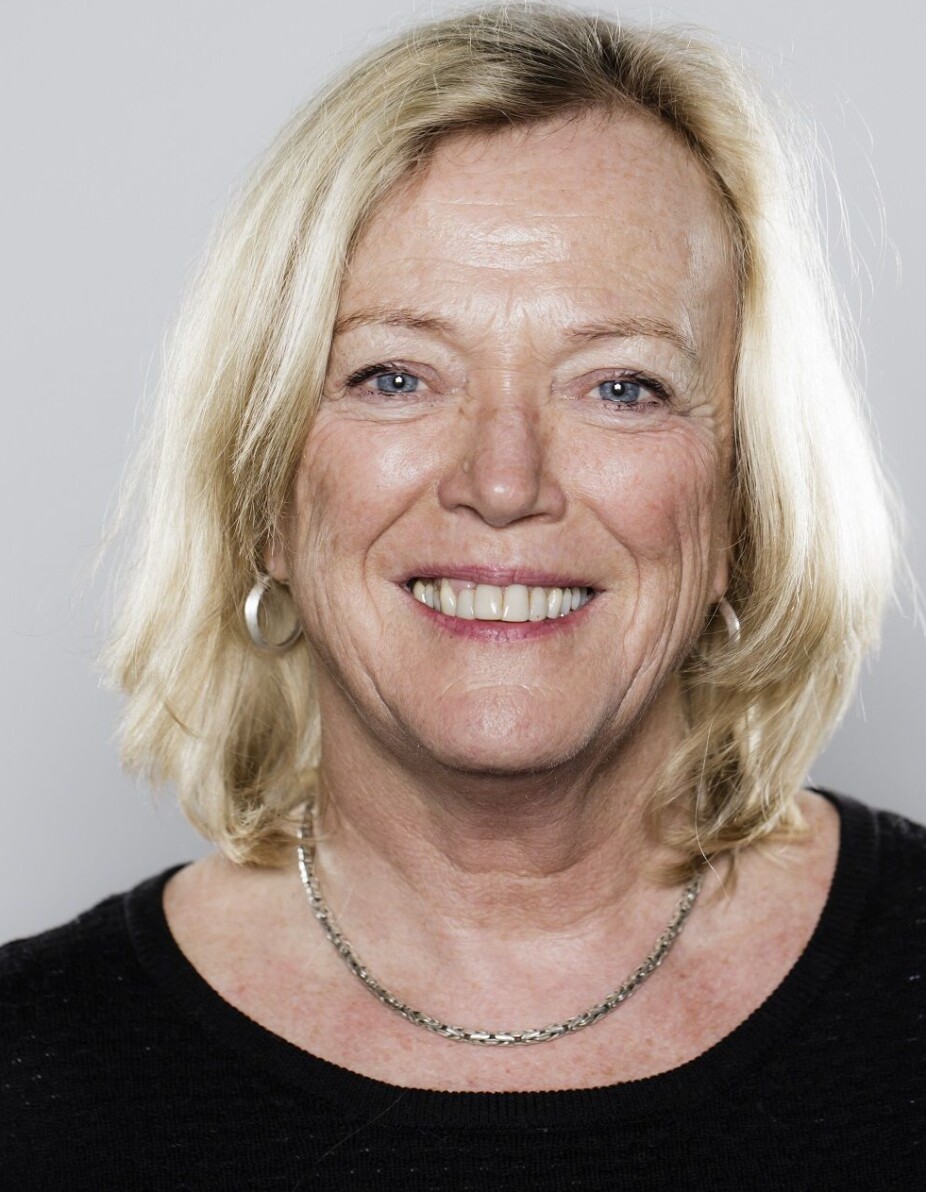
Gry Synnevåg at Noragric has worked with food security in a number of African countries for many years:
"Those who live in the poorest parts of the cities spend a major part of their income on food. If prices increase, they will experience major negative consequences. The pressure on what are already vulnerable groups will increase. As in every crisis, the poor are the worst hit," says Synnevåg.
In many places there is also a shortage of clean water and soap. Hygiene and sanitary conditions are already critical factors in poor areas. It is not uncommon for people to die from diarrhoea.
Experience from the Ebola crisis
Between 2014 and 2016 the West-African countries of Liberia, Sierra Leone and Guinea were hard hit by the Ebola virus, which led to 12,000 registered deaths. The Word Health Organisation believes the actual figure to be much greater, however.
Divon believes that the health systems in these countries will draw on the lessons learnt and resources used during the Ebola crisis in their battle against the coronavirus. Even though there are essential differences between how Ebola and Covid-19 develop, experience of measures such as isolation, hygiene advice and social distancing will be valuable. Being constantly faced with health-related challenges, many African countries have found ways to deal with such challenges.
"People know what an epidemic means. In addition to Ebola, they have experience of, for example, HIV, tuberculosis and malaria. It is not the first time that strict measures are introduced."
At the same time, it is the health workers themselves who are most exposed: According to the Public Services Department, eight per cent of Liberia's health workers died as a result of the Ebola epidemic.
"The fact that a large proportion of the population suffer from underlying diseases can also raise the death rate from Covid-19 in many African countries", Divon points out.
Is there room for a global collective effort?
The Norwegian Minister of International Development Dag Inge Ulstein has called for a grand collective global effort to help the poorest countries that have the weakest systems.
"A community effort is clearly important. International organisations are already running large parts of the health system in the poorest states, because there is simply nobody else who can do it," says Hansen.
Nonetheless, the Noragric researcher believes that Africa will be more on its own in the fight against Covid-19 than in previous crises. There will be a battle to obtain tests and face masks, and countries that do not produce such equipment themselves will lose that battle. Not many African countries have enough muscle to compete for such equipment.
"We must not think that if we get the virus under control in one country, the battle has been won for ever. If the virus thrives in Africa, or in other places, it will also return to us. We must keep this in mind when we implement measures – today and in the time ahead," says Hansen.







